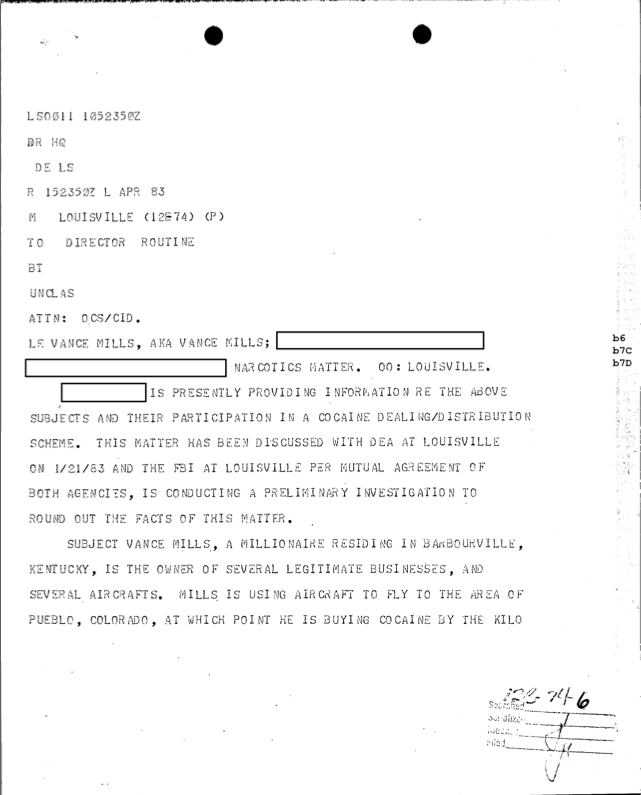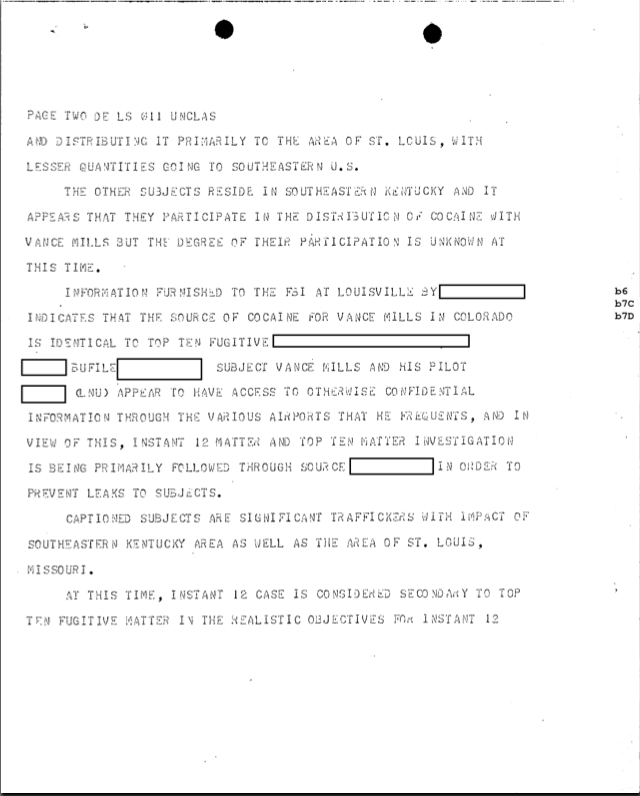The following was submitted by guest JurisDoctorate as a response to the article, “Rooted in corruption: the early days of Tom Handy, former Commonwealth Attorney of Knox, Laurel counties.” Eloquent and eye-opening, I decided the comment deserves its own dedicated page on this blog.
The most horrifying aspect of the entire kangaroo court system in Knox/Laurel Counties, is that Tom Handy railroaded defendants for over two decades and got away with it. The number of convictions overturned by the Kentucky Court of Appeals, the Kentucky Supreme Court and the Sixth Circuit Court of Appeals — convictions procured by Tom Handy’s office between the late 1970s and the late 1990s — is both bewildering and disturbing. Just as the OP documented and outlined in the above story, many convictions were overturned due to egregious due process violations, fabricated or altered evidence, perjury on the part of the Commonwealth’s witnesses, failure to disclose exculpatory evidence to the defense (“Brady” violations), jury tampering, and blatant lies told by Tom Handy, Jimmy Phelps, Johnny Phelps, KSP troopers and other agents for the Commonwealth, while under oath. Any other prosecutor in any other jurisdiction would almost certainly have been disbarred for prosecutorial misconduct and prosecuted for repeatedly perpetrating fraud upon the judiciary in order to railroad criminal defendants of whom the Commonwealth knew were innocent. If the 27th Judicial Circuit (Knox & Laurel Counties) is not the most corrupt and nepotistic jurisdiction in the entire country, I would be hard-pressed to conceive of a scenario where corruption was more abundant.
Tom Handy’s tenure as Commonwealth’s Attorney and Assistant Commonwealth’s Attorney is only the tiny tip of the proverbial iceberg. Laurel County now has a jailer who, since being elected into office, has made several millions of dollars by selling electronic cigarettes to inmates. Jailer Jamie Mosley owns Crossbar Electronic Cigarettes, a very lucrative company that manufactures and sells special safety designed electronic cigarettes to jails and prisons throughout the United States. That fact is not problematic in and of itself — it’s the manner in which Jailer Mosley founded and established his multimillion dollar business. Indeed, he started by selling his patented e-cigs to the inmates at the Laurel County Jail — the same jail he was elected to supervise and operate.
Federal and state laws are very clear that a genuine conflict of interest ensues when an elected jailer — who is paid by the county fiscal court — conducts business in a manner where financial gain is being obtained by way of the jailer’s official office. It’s double dipping first and foremost — running a profitable business while conducting the duties for which he is being paid by the good taxpayers. It would be no different than a KSP trooper working as security personnel for a business while on the clock at the KSP post. So, when this conflict of interest came to light and taxpayers began making inquiries into the legal and ethical standpoints of the matter, guess what Jailer Mosley posits to alleviate himself of criminal culpability and malfeasance of office? He did what any good Laurel County politician would do — he told a bold face lie, stating that it was his wife, not he, who owned and operated Crossbar Cigarettes.
By selling e-cigs for a couple of years to the inmates of the jail he was elected to supervise, as well as other county jails in Kentucky, Jamie Mosley’s entrepreneurship paid off and he was able to build the company into the very successful multimillion dollar business it is today. In 2018 alone, for instance, CrossBar profited more than $3.5 million bucks. And he built his foundation while being paid by the taxpayers of Laurel County. Incredibly, he continues to get away with it.
I should also mention the elected Sheriff of Laurel County, Mr. John Root. A more corrupt sheriff there has never been. Sheriff Root likewise profits while on the taxpayers’ dime. For example, he allows several local businesses in Laurel County to own and operate illegal gambling machines, AKA “poker machines”… for a modest fee of course. Proprietors of these small stores are given very clear directives regarding the financial arrangement for being allowed to operate. The Sheriff’s office hosts fundraisers and benefit events throughout the year for a colorful variety of “good causes.” Store owners who operate these poker machines are strongly encouraged to be forthcoming with modest donations to these good causes. In turn, they receive promises that law enforcement will turn a blind eye to the illegal gambling and will not make on-duty appearances at the businesses just as long as the riffraff doesn’t get out of hand. No obvious drug trafficking in the parking lot; no prostitutes being obvious with their goods and services; no public drunkenness to a degree where fights start breaking out; and, of course, free coffee and donuts for the boys in blue. After all, these officers are promoting “good causes” in the community.
These rules apply equally to poker rooms and cockfighting establishments. However, Sheriff Root has recently drawn unwanted attention from some of the more prominent animal rights organizations such as SHARK (SHOWING ANIMALS RESPECT AND KINDNESS), a group which is very active in investigating and trying to shut down venues where cockfights are held, as well as taking steps to have the venue owners arrested and prosecuted. Check out YouTube by searching for the keywords “SHARK,” “Supersheriff John Root” and “Cockfighting.” This group has put a rather intense spotlight on much of the corruption occurring in Laurel County.
To cover even a scintilla of the nepotism, cronyism and public corruption occurring in Laurel and Knox Counties, I would need to pen several chapters of a robust manuscript. Some occurrences are so baffling to believe that they sound like works of fiction. Moreover, I’m so paranoid posting this reply that I have taken steps to spoof my IP address and encrypt all my internet traffic by routing it through a foreign VPN server.
The politicians in the 27th Judicial Circuit would do well to employ caution in their everyday dealings and crookery. I recall that several years ago, Clay County, Kentucky, was knee-deep in political corruption and kangaroo court practices. Most people believed those powerful men could not be touched by the law. On July 9, 2009, the Clay County Circuit Court Judge, Cletus Maricle, Clay County School Superintendent Doug Adams, Clay County Clerk Freddy W. Thompson, and Clay County election officer William Stivers, as well as other Clay County officials, were named in a 13-count federal indictment. The indictment included Racketeer Influenced Corrupt Organizations Act (RICO Act) charges relating to a county-wide vote-buying scheme which allegedly occurred from 2002 until 2007. The four aforementioned officials, as well as other defendants, were ultimately convicted of the charges per a plea agreement with the US Attorney’s office. Although the sentences handed down did not result in prison time, the ordeal ruined the men in the political arena.
Like the officials in Laurel County, the Clay County politicians were being far too bold and arrogant in their corrupt schemes. Their collective disregard for discreteness ultimately led to their demise. I’m no fortune teller, clairvoyant or divine seer, but I have a hunch that several of the top elected officials in Laurel County will likewise be named in a federal indictment sometime within the next two years. Good riddance is my position on it.
In true accord, I hope they get railroaded.
-JD

Full article from The Gleaner here
https://www.newspapers.com/clip/113872092/
and here
https://www.newspapers.com/clip/113872163/









